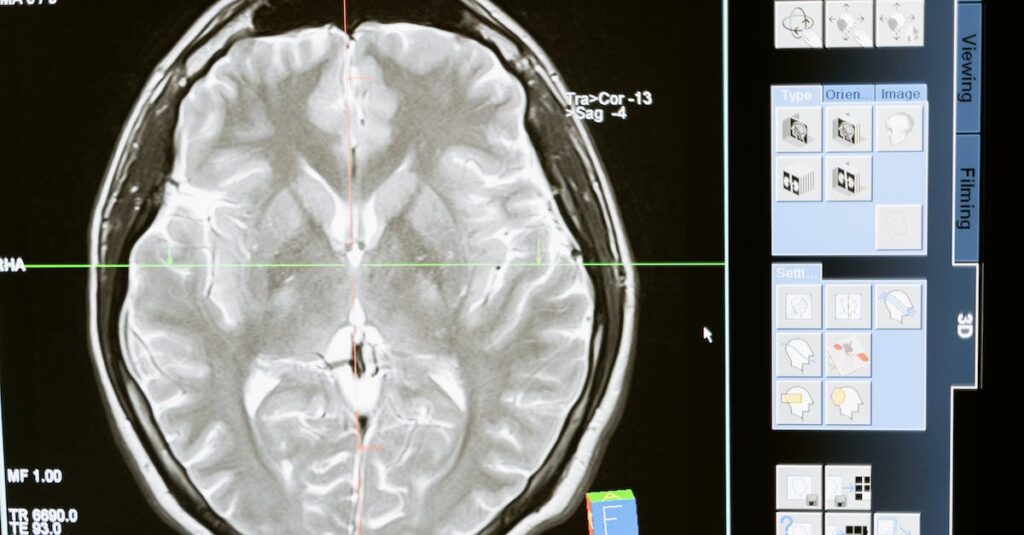Ever find yourself scratching your head when the check engine light comes on? If you’re like me, you’ve probably wondered if there’s a way to diagnose car troubles on your own. That’s where OBD scanners come into play.
OBD scanners, or On-Board Diagnostic scanners, are devices that can read and diagnose issues within your vehicle. They’re like a doctor for your car, interpreting the data your car produces and giving you a diagnosis. But are they worth the investment?
In this article, we’ll delve into the ins and outs of OBD scanners. We’ll discuss their functionality, cost-effectiveness, and whether they’re a practical tool for the average car owner. So, buckle up and let’s get started on this journey of discovery.
What is an OBD Scanner?
Let’s cut to the chase: an OBD scanner is a device that provides a window into your car’s health. Similar to how a doctor uses medical tools to detect an illness, an OBD scanner pulls codes from your vehicle to identify any underlying problems. Essentially, it gives your car a voice to let you know how it’s doing.
OBD stands for On-Board Diagnostics. It’s a computer-based system built into all cars and light trucks after 1996. I’m sure you’ve noticed the ‘check engine’ or ‘service engine soon’ light on your vehicle’s dashboard. This little light is the beacon of the OBD system, signaling when something goes wrong inside your vehicle.
That’s where an OBD scanner comes into play. Once you’ve got an ol’ blinky light in your face, you plug in this handy gadget. The scanner reads the error code that’s causing your warning light to flash. Each of these codes corresponds to a specific issue, and it’s the OBD scanner that lets you in on what that issue might be.
Bear in mind that different scanners offer varying degrees of functionality. You’ll find some basic models just providing the error code, while more advanced ones might offer on-screen definitions, live data, system tests, and more. They range from the simplistic ‘code readers’ to sophisticated ‘scan tools’ with a wealth of features.
But no matter the type or complexity, they all serve one main purpose – helping you identify problems with your car. It’s a modern-day mechanic’s best friend, an invaluable tool for anyone looking to get under the hood of vehicle diagnostics.
Heading into our next section, we’ll discuss how these OBD scanners can affect your wallet. Do the benefits they offer justify the cost for the average car owner? Let’s dive in and see. Stay tuned to find out.
How do OBD Scanners Work?
Let’s begin by understanding how OBD scanners work. Once the check engine light illuminates on your dashboard, it’s an indication that the car’s onboard computer system has detected an issue. This is where the OBD scanner comes into the picture.
An OBD scanner is plugged into the OBD-II port of your vehicle. Post connection, it communicates with the car’s onboard computer. This is the system that monitors and controls aspects of the vehicle’s performance and will have recorded the error that triggered the check engine light.
The scanner retrieves these error codes and decodes them, translating these seemingly complex codes into understandable terms for the car owner. This could be anything from issues with the oxygen sensors to a loose fuel cap. With a clear idea of what’s wrong, you can decide whether it’s something you can handle yourself or if it’s time to bring your car in for service.
Importantly, the diagnostic capabilities of an OBD scanner vary widely. Basic designs provide only the error codes, which you’d then have to lookup in a database for their meanings. More advanced models, on the other hand, deliver real-time monitoring of numerous car systems and even provide suggested fixes for the issues detected.
However, note that an OBD scanner does not fix the problem. It only identifies and translates the issue for you. Use of an OBD scanner can help in detecting problems early, potentially saving on repair costs, and preventing further damage to the vehicle.
It’s worth noting that an OBD scanner’s effectiveness largely depends on the individual using it. Those unfamiliar with car maintenance may not find minor codes useful, while car enthusiasts and mechanics will surely appreciate the depth of information it provides.
In the next section, we’ll delve into the considerations when assessing the cost-effectiveness of OBD Scanners. From purchase price to usage and repair savings, these aspects will be key in determining if this tool is indeed worth the investment.
Benefits of Using an OBD Scanner
In my experience, I’ve found that incorporating an OBD scanner into a vehicle’s maintenance routine can have substantial benefits for the car owner. These benefits aren’t just related to cost savings – they go beyond that to include preventative measures, extended vehicle lifespan, and improved safety on the road.
Cost Savings
It’s no secret that OBD scanners can help identify potential problems before they become expensive repairs. When a scanner detects an error code, it gives car owners the opportunity to address the issue proactively. Surprisingly, this simple step can save a significant amount, as it often prevents minor problems from turning into major repairs.
Vehicle Lifespan
Routine use of an OBD scanner can also result in a longer lifespan for a vehicle. By catching and addressing issues early on, overall wear and tear on the vehicle can be reduced. The scanner serves as an early warning system, alerting car owners to potential problems that, if left unchecked, could result in serious damage.
Safety
When it comes to safety, OBD scanners can provide invaluable peace of mind. They help car owners keep tabs on vital vehicle systems like the engine, transmission, brake system, and more. Potential issues in these areas could become dangerous if gone unnoticed, hence the role of an OBD scanner in maintaining vehicle safety cannot be overstated.
One might argue that the money and time spent on obtaining and using an OBD scanner is better devoted elsewhere. But when you look at these benefits, it becomes clear that an OBD scanner not only saves money – it’s an invaluable tool for ensuring the longevity and safety of a vehicle. The next section will delve into the downfall of OBD scanners, taking an objective and balanced view on whether they’re truly worth the investment.
Are OBD Scanners Cost-Effective?
One of the top questions that come to mind when using an OBD Scanner for regular vehicle maintenance is about cost-effectiveness. Well, let’s delve into this matter.
First, let’s consider the initial investment. Most basic OBD scanners fall into an affordable price range, making them accessible for the average car owner. Of course, professional-grade scanners can cost significantly more, but those are primarily intended for auto repair shops or enthusiasts who need advanced diagnostics.
Weigh this against the potential savings. By catching issues early, OBD scanners can save hundreds, or even thousands, of dollars. A minor engine issue undetected can snowball into a major, costly problem. Here’s a simple comparison based on hypothetical but possible scenarios:
| Maintenance Items | Without OBD Scanner | With OBD Scanner |
|---|---|---|
| Minor engine issues | $500 – $1000 | $100 – $200 |
| Major engine repairs due to late detection | Over $3000 | Preventable |
| Breakdown Towing charges | $75 | Preventable |
The upshot? An OBD scanner could pay for itself many times over in preventing just one major repair. And that’s not factoring in the value of potential safety risks averted, or the peace of mind these devices deliver.
We can’t deny certain downsides to using OBD scanners. For one, they’re not completely foolproof. They’re limited in what they can diagnose and sometimes give false positives. Plus, the effectiveness of an OBD scanner is only as good as the user’s ability to interpret the data. For inexperienced individuals, there may be a learning curve involved. But with a bit of patience and a willing effort to comprehend, taking advantage of this technology can become an easy ride.
So while the cost-effectiveness of an OBD scanner can vary considerably based on factors like market price, user expertise, and frequency of use, a strong case can be made for their value in preventive maintenance and safety.
Conclusion
After digging deep into the world of OBD scanners, it’s clear they’re worth the investment. While they might seem like just another gadget, their potential to save you from expensive repairs is undeniable. Basic scanners are affordable for most car owners and the benefits they offer in terms of preventive maintenance and safety are substantial. Sure, there’s a learning curve and the possibility of false positives, but these are minor hiccups in the grand scheme of things. The peace of mind knowing you can catch car issues before they balloon into major problems is invaluable. So, if you’re still on the fence, take the leap. An OBD scanner is a smart addition to your car maintenance toolkit.
Are OBD scanners cost-effective for vehicle maintenance?
Yes. OBD scanners can be quite cost-effective for vehicle maintenance. Despite their initial cost, they can save money in the long run by accurately identifying issues early on before they escalate into more expensive problems.
Are OBD scanners affordable for the average car owner?
The basic OBD scanners are fairly affordable for the average car owner. However, the price can increase depending on how advanced the scanner is in terms of features and capabilities.
What are the potential savings from using an OBD scanner?
The potential savings from using an OBD scanner come from preventing major repair costs. This is achieved by diagnosing minor issues early, which could lead to significant repair work if left unchecked.
Is there a cost comparison between using and not using an OBD scanner?
Yes, the article provides a cost comparison illustrating that using an OBD scanner can result in significant financial savings over time compared to not using one.
Are there any disadvantages to using OBD scanners?
Yes. OBD scanners can sometimes give false positives and require a certain level of expertise to use effectively. However, the advantages in terms of preventative maintenance and safety typically outweigh these drawbacks.

